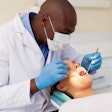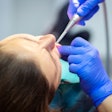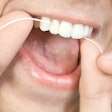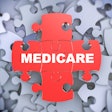The U.S. Patient Protection and Affordable Care Act (ACA) does not lower costs or increase access to dental care, according to an ADA analysis.
But states can step up to correct the situation, the ADA noted in a press release.
Some 8.7 million children are expected to gain dental benefits from the ACA, which will reduce the number of children without dental care by about 55%, according to research briefs released by the ADA's Health Policy Resources Center (HPRC).
However, only about 5.3 million adults are expected to gain extensive oral health coverage from the ACA, almost all due to Medicaid expansion in the few states that provide extensive dental benefits, the HPRC noted. This will reduce the number of adults without dental benefits by only 5%. Also, Medicaid-eligible adults may see few improvements in their ability to get dental care.
There could be significant pressure on Medicaid providers under the ACA changes because the law fails to address such factors as administrative inefficiencies and low reimbursement rates, according to the HPRC. This means that adults will have few options beyond emergency rooms for dental care.
Barriers to dental care for children have declined in the past 10 years while barriers for adults have risen, the HPRC noted. More children had dental benefits in 2010 than in 2001, due primarily to Medicaid and the State Children's Health Insurance Program, which mandates dental benefits for children.
By contrast, more adults went without dental benefits in 2010 than they did in 2001, the HPRC reports. Although more adults were covered by Medicaid during the period, adult dental benefits in Medicaid programs have declined.
Most state Medicaid programs currently provide limited or no dental benefits for adults, but the states can improve the situation by expanding Medicaid coverage, the HPRC noted. Accountable care organizations also have the opportunity to bridge the gap by improving the coordination of various types of care and reducing overall healthcare costs by breaking down silos of care, according to the HPRC.



















